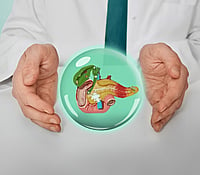In a significant breakthrough, scientists at the University of Colorado Anschutz Medical Campus have uncovered a previously unknown link between sugar metabolism and alcohol addiction, paving the way for potential new treatments for alcohol-associated liver disease (ALD) and alcohol use disorder (AUD).
The findings were published in Nature Metabolism.
The study reveals that alcohol consumption activates a metabolic pathway that produces fructose—an internal form of sugar typically found in sweetened foods and beverages. This process is driven by an enzyme known as ketohexokinase (KHK), which the researchers found to play a crucial role in reinforcing drinking behaviour and worsening liver damage.
Experiments conducted on mice demonstrated that those lacking the KHK enzyme showed markedly lower inclination towards alcohol. These mice consumed less alcohol across a range of behavioural models and exhibited reduced activity in brain regions associated with addiction.
More notably, blocking the KHK pathway—either genetically or through medication—appeared to prevent alcohol-induced liver injury. The treated mice showed less fat accumulation, inflammation, and scarring in the liver, suggesting that interrupting fructose metabolism could halt or even prevent the progression of alcohol-related liver disease.
“Our findings show that alcohol doesn’t just damage the liver directly, it hijacks the body’s sugar metabolism in a way that enhances drinking behaviour and worsens liver injury,” said Miguel A. Lanaspa, Associate Research Professor and senior author of the study. “By targeting fructose metabolism, we may be able to break this cycle and develop new treatments for both alcohol addiction and liver disease,” he added.
The research also draws parallels between alcohol-associated liver disease and metabolic dysfunction-associated steatotic liver disease (MASLD), both of which involve fructose-driven mechanisms. The authors suggest that therapies inhibiting fructose metabolism could benefit a wider group of patients suffering from diet- or alcohol-related liver disorders.
“This discovery highlights an unexpected intersection between sugar and alcohol metabolism,” said Richard Johnson, Professor at CU Anschutz and co-author of the study. “It opens exciting possibilities for developing treatments that target a shared pathway underlying both metabolic and alcohol-related liver diseases.”
The findings mark a promising step forward in addressing two major global health concerns—liver disease and alcohol addiction—for which effective treatments remain limited.



























